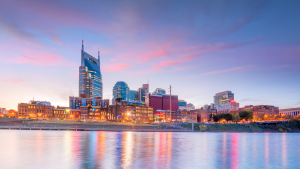What Is Travel?

Travel is the movement of people between distant geographical locations. It can be done by plane, train, boat, car, or bicycle. You may go round-trip or make a shorter trip, and you can bring your luggage along.
Origin of the word
Travel is a fairly old term, dating back to at least the 14th century. It is probably a descendant of the word travail.
The original meaning of the word “travel” is difficult to determine. However, it has been suggested that it is a derivative of the Old French word travail, which means toil, trouble, or labor. This definition is substantiated by the use of the word in the mid-late 16th century to mean a journey.
Other possible origins include the Latin trabes, a term used to describe a beam or beams. Or, it could be the Vulgar Latin root *diurnum, a term used to describe a daily allowance.
Another popular hypothesis is that the word travel came from the Medieval Latin trepalium, a torture device that consisted of three stakes. The trepalium was a torture tool used in the late Roman Empire.
Common modes of transportation
There are many different types of modes of transportation. The common ones that you will find when you are traveling include automobiles, trains, buses, airplanes and ships. Each mode has its own advantages and disadvantages. It is important to decide on the most appropriate mode for your travel needs.
Automobiles are the most popular mode of transportation worldwide. A 2002 survey revealed that there were 591 million vehicles in the world. Vehicles are mostly used for commuting, but they can also carry cargo and people.
Road transportation has evolved over the years from horses and wagons to the modern-day automobile. Today, road transportation accounts for approximately 13.5 percent of all cargo transported. However, it is a highly energy-intensive and area-constrained mode.
Trains, on the other hand, are more efficient than cars. Using train travel, you can get from one end of the country to the other for a fraction of the cost and time.
Types of travel insurance
There are many types of travel insurance, and the choice is up to you. The policy you choose should meet your needs and your budget.
Travel insurance is designed to protect travelers from unexpected disruptions. It can cover the cost of medical care, baggage loss or damage, and trip cancellations. However, there are certain limitations and exclusions.
One of the most common types of travel insurance is package insurance. Package policies are more comprehensive than other types of travel insurance. They can include trip cancellations and evacuations, emergency services, and other benefits.
Another type of coverage is accident insurance. Accidental death and dismemberment insurance covers accidental deaths and injuries that occur while traveling. This policy is often duplicated with a life insurance plan, although it can be purchased separately.
Can’t cancel a trip because of insurance
While the cost of travel insurance may be prohibitive, the high price tag notwithstanding, it’s always better to be prepared for the worst. Not only can you find a cheaper rate on a last minute deal, but you won’t be stuck stranded if a flight becomes a dud. A reputable provider will also take care of any medical emergencies, even in the event of a natural disaster. You won’t have to worry about a canceled flight or missing a crucial meeting. This is especially handy if you’re traveling solo or with a loved one. For more information, check out our comprehensive guide to the best travel insurance providers. We’re sure you’ll find the policy that’s right for you. Or maybe, you’re just looking to compare rates. The site is free to browse, and all information is presented in plain English.
Covid-19 pandemic affects
The Covid-19 pandemic has put a significant dent on the international travel industry. It has forced a number of destinations to restrict international visitors. This has led to a dramatic decline in global tourist arrivals, which have fallen 65 percent from the same period last year.
Despite the disruption, travel and tourism has still been a major contributor to global economic growth, with 9.5 percent of the world’s GDP being spent on this sector. In fact, it has contributed 2.9 trillion US dollars in direct and indirect terms.
In the United States, air travel reached two million passengers per day. With the outbreak, a total of 125,817 people died. A total of 11,409,831 people were infected with the disease.
There are many factors to consider when considering the effects of a pandemic on travel. One of the biggest is the potential social stigma that individuals may face due to the illness. Another factor is the complexity of the disease.



